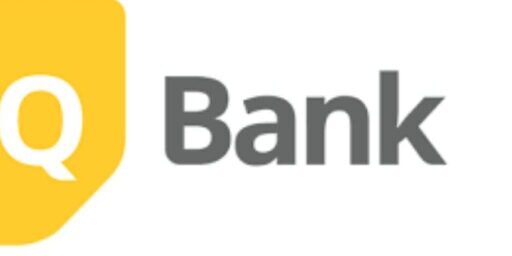Net Worth Update September 2014 – Nobleea
Welcome to the Million Dollar Journey September 2014 Net Worth Update – Team MDJ edition. A select group of readers were selected to be part of Team MDJ which was conceived after the million dollar net worth milestone was achieved in June 2014. Nobleea was selected as a team member and will post net worth updates on a regular basis. Here is more about him.
Profile:
- Name: nobleea
- Age: 36
- Net Worth: $681,388
- Day Job: Engineering supervisor at large oilfield services company, Teacher (wife)
- Family Income: $145,000 (main job), $30,000 (part time job), $85,000 (wife main job), $10,000 (wife part time job), $14,500 (rental income before expenses)
- Goals: Pay off primary house mortgage in September 2014, Million dollar family net worth before 40, Retirement from primary job at 50 (for me)
- Notes: Owns primary house. Owns tear down house across the street currently being rented. (to be torn down for new family home)
I stumbled across MDJ by accident the same year it was created. Such a great wealth of information and an inspiration. I’ve been following regularly since then. I track and trend these networth numbers on a monthly basis, so posting them here isn’t much of a stretch.
We live in Edmonton where incomes are high and housing prices are fairly reasonable. Some may roll their eyes at the high family income and say that a million dollar journey is going to be pretty easy. That is likely true, so some of the goals should reflect that. I have a plan to retire at 50 and pursue other things. This will still involve working, but part time on things I’m really passionate about and with no requirement for a decent income.
My wife will likely continue working until it makes sense to retire with her DB pension. The penalties for early retirement are pretty severe. She is 3 yrs younger than me. We have a 6 month old daughter and plan to have more children. She is currently on EI and will be returning to work in February on a part time basis. Income numbers above are based on last year, when she worked full time. I will be taking parental leave for 5 weeks this year as well. We recently bought a tear down property across the street from our home. We will be tearing it down in the spring and building a larger family home. Once we take possession of the new build, our current home will be sold.
We travel a lot for pleasure but are pretty frugal otherwise (no cable, coupons, pay and talk phones, dine out or take-out a few times a year). I try to keep our cash balances as low as possible and want every spare dollar going towards debt repayment. I would say our living expenses are low relative to our income. We have worked hard to avoid most lifestyle inflation.
Given our low cost of debt, some might question the choice to pay down debt. Some might suggest that we borrow to invest. Over the past several years, I have learned that borrowing to invest is not a great option for me, as I am prone to take unnecessary risks with investment choices when it is not money I’ve earned. Paying debt down is guaranteed return and once the debt is all gone, it releases a lot of cash flow which can be used for investments.
On to the net worth numbers:
Assets: $1,111,911 (+0.00%)
- Cash: $1,137 (+0.00%)
- Registered/Retirement Investment Accounts (RRSP): $154,033 (+0.00%)
- Tax Free Savings Accounts (TFSA): $0 (+0.00%)
- Defined Benefit Pension: $47,500 (+0.00%)
- Non-Registered Investment Accounts: $30,166 (+0.00%)
- Principal Residence: $458,000 (+0.00%)
- Tear Down Property: $375,000 (+0.00%)
- Vehicles/Other: $46,075 (+0.00%)
Liabilities: $431,111 (+0.00%)
- Principal Residence Mortgage: $11,959 (0.00%)
- Tear Down Mortgage: $300,000 (0.00%)
- HELOC: $110,992 (0.00%)
- Car Loan: $4,325 (0.00%)
- Credit Cards: $3,835 (0.00%)
Total Net Worth: $680,800 (+0.00%)
- Started 2014 with Net Worth: $566,394
- Year to Date Gain/Loss: +20.2%
Some quick notes and explanations to common questions:
The Cash
Cash includes bank account balances in two accounts, plus any gift card balances. We try to keep as little money in bank accounts as possible and make mortgage prepayments with it instead. We use cash flow modeling to predict the maximum amount we can put towards debt today without having a negative balance in the future, taking all one time or non-regular bills in to account.
Loans and Credit Cards
The credit cards are paid off in full every month with no interest due. We put all our expenses on credit cards for points and cash back. As this can be a substantial amount some months, I believe it needs to have a line item in your monthly net worth as it is a liability at that snapshot in time. The HELOC is almost completely tax deductible (small smith maneuvre and downpayment on rental). Considering the tax deductibility of interest, our highest net interest rate on liabilities is 2.24%, with a weighted average rate of 1.79%.
Savings
TFSA’s have not been started yet as all spare cash has been going against the mortgage. Transferring the non-registered investments over would affect the tax deductibility of some of the HELOC.
Real Estate
Our primary residence was purchased in 2008 for $355K. We have put in $110K in renovations since then in a complete overhaul. The house value shown here is based on those two numbers and is conservative relative to what similar homes in the area sell for.
Our ‘rental’ is across the street and was purchased last month for the lot, purchase price $375K. It is currently rented (cash flow negative) and will be torn down in April to start construction on our new home. The next 2 years will be a mess with construction draw mortgages, HELOC balances for some construction costs, messy accounting for a rental that was effectively disposed of after 7 months of rent. We have no desire to remain landlords now or in the future. Once we move to the new home and sell our current home, the plan is to pay that one off in 5-10 years.
Pension/Investments
My wife has a DB pension as a teacher. The balance shown is her contributions to date as shown on annual statements. I have a matching RRSP plan through my work. Combined with CPP, we are not worried about retirement income, it’s just a matter of timing. We plan on contributing to my RRSP in order to get the full match but no more, then max out TFSA for investments, and then non-registered investments.
We have pretty substantial unused RRSP contribution room and will likely never use it. Perhaps in the event of a large capital gain, we may contribute some to offset the capital gain taxes. Not listed on the net worth values is our daughter’s RESP, which has a balance of about $1800. We plan on contributing enough every year to get the full CESG grant. The RESP is invested in TD e-series funds in a couch potato portfolio as a family plan.
Vehicles/Other
About half of this amount is vehicles. We have a 2013 and a 2000 model year. I depreciate their value every month in net worth updates to keep it at just above wholesale value. The “Other” refers to fairly extensive photography equipment (part time business), sporting equipment and personal property.










Primary Residence in NWS
Person A – Today
$100,000 CASH and no debt NW = $100,000
Person A – Tomorrow
Buys $100,000 condo cash, no debt NW = 0
Person A – 2nd Day
Borrow $100,000 against condo and invests in ETF
$100,000 Condo, $100,000 MTG, $100,000 stock NW = $100,000
All smoke and mirrors SST
Derico,
Yes, I consider the HELOC to be a source of emergency funds. We both have secure positions and given our level of spending, we’d really only need one average income to sustain ourselves. I really don’t think that would be challenging with the skill sets we have. We can cover most other emergencies from cash flow, things like car repairs, roof leaks, appliance failures, etc.
In our next house, I plan on starting a monthly savings plan for maintenance, repairs and replacements which can also double as emergency savings.
Nobleea, one thing you didn’t talk about was your “emergency fund” philosophy. Since you carry no cash reserve, is your Heloc your source of emergency funds? Personally, as a single person with a job in a somewhat uncertain industry (consulting engineering) I made a priority of building up my TFSA with some HISA cash as well as couch potato Funds I can access if necessary. I’m guessing with 2 incomes that’s less of a priority for you, but just curious.
Net worth should include your primary residence. Net worth is your total assets – liabilities, it has nothing to do with what money you have access to or how much money you will have to spend in retirement.
However for a “million dollar journey” I don’t include my primary residence since my million dollar goal is for money that I have access to freely. This isn’t my net worth it’s just a goal. Having a paid for primary residence just means that I will always have a place to live!
MDJ has been doing the net worth with the home included and Money Sense does it that way too. The vehicles are also included with Money Sense so it only makes sense to follow a standard. It’s money a bank would look at but it’s not money you can rely on for retirement. I think the inclusion should be there as a way to compare since MDJ started it this way. Consistency is important. You investments are like a home too in the true sense as there is a market value and you can sell it. If you ignore the fact that you have to pay rent later or that there is a cost to owning a home. The reality is that you can spin it every way you want and you keep going in circle around this debate … If you think about it, you can’t leverage investments much but you can leverage a home so it’s a really good asset to have.
I think nobleea is doing good in the savings category. I know many that earn less and drive new BMW and other luxury cars and have no savings. Their lifestyle grows faster than the salary they earn. That’s really what everyone should take from this – life style expenses are kept in check.
It is true that the higher the income is, the faster you *can* reach goals but only if you rein in your expenses. It’s hard too because the friends and co-workers are usually in the same spending bracket and you have to make choices. No kids also helps … but those are the choices that one needs to make.
Congrats on getting to where you are.
I will say and agree with everyone that time is a commodity. At 40 with two kids, time is really at a premium. I used to do a lot of work on my own and now it’s not worth my time … and I have money to pay for it.
re: “At what point does a part time job no longer make sense?”
I held a part-time position for the last five years; one day a week in a retirement home(!). All proceeds went to the family of a terminally ill friend. Was it worth it? Yes; hang out with old and/or dying people and you will immediately realize the deep value of Life.
The thing about p/t jobs, etc., is that it’s only money. Time is the most precious commodity we have so you better be getting a ton of money for that extra time. Want more money, move to Alberta*. Want more time…I dunno…start praying?
My own MDJ is at a much more comfortable pace than some of the others’ on here because I will ALWAYS choose time over money — I work maybe 1,500 hrs/yr — but I’ll definitely make it, even w/o principle residence on the books.
In the immortal words of one F. Bueller, “Life moves pretty fast. If you don’t stop and look around once in a while, you could miss it.”
*(I moved out of Alberta because I desired a better quality of life. I quickly realized one not need live in Alberta in order to reap the rewards of oil. You simply have to invest in Alberta and let other people do the work. Then enjoy all your extra time.)
I’m in a very similar position as you. I live in Alberta and I’m employed in the Oil & Gas sector in the field of engineering. My wife also works (currently on mat leave) and we have two kids ages 4 and almost 1. Your net worth is a little higher than mine, but you’re also a little older too :)
Thanks for clarifying how you calculated your family incomes. The reason I think this is important is not because of the 1% stigma, but because it further highlights the need to have a benchmark/template/standard for future contributors on this site. One person may give their base income, while another will use their T4 total income. One person may include their house as an asset, while another may not. The same can be said for listing vehicles as assets, or estimating taxes on registered savings. Ultimately, these differences may hinder or confuse discourse on future net worth discussions.
Have to say that the new profile is a bit more like the G&M financial makeovers which appeal to their demographic, and less so for this site. I agree with some others that the information is interesting, as anytime you get a chance to see how other families are spending that can be a trigger to assist you in your own budget allocations.
Surprised there are still arguments on net worth calculations, as others have correctly pointed out there is a distinction between investment equity and net worth.
I track both as they allow me to see how I have progressed. But, as we all likely realize it is investment equity that will provide us the means towards an early retirement. You need to pay the bills and without passive income, if not working, then collectors will be calling.
So, net worth is a good metric, but don’t get into long arguments with others when they are including primary residence or vehicles, even when those are depreciable assets. It is just one metric in looking at financial health.
A good one is taking a budget and calculating years/months to deplete based on portfolio, the tighter your budget the longer you can go, of course the greater your portfolio this increases the duration.
Better end here going off on a tangent..
Enjoyed this site for years btw, thanks! Has been a great motivator.
jolayn/LIC,
I’m not eligible for OT at my job either, but I consider my part time work to be OT (work hours over 40/week would be OT, regardless of who the employer is, in my books). I only work 4-5 hours a week and almost exclusively when the wife and child are already asleep, so I don’t feel like I’m missing things and the money helps pay for travel and early retirement.
jolayn,
Her income is straight off the T4 for last year, so would include all taxable benefits. Mine is estimated for 2014 and is probably on the low side given bonuses. Bonuses are entirely dependent on the success of the company and my performance and can range from 0-35% of salary.
Interesting post. I enjoyed reading it.
@nobleea – If I was to take a part time job, my hourly rate there would have to be at least equal to my primary job. I am not eligible for OT at my primary job.
Question about the family incomes: are these numbers only base salary, or do they include bonuses and/or taxable benefits (such as company-paid RRSP contributions, company vehicle, etc)?